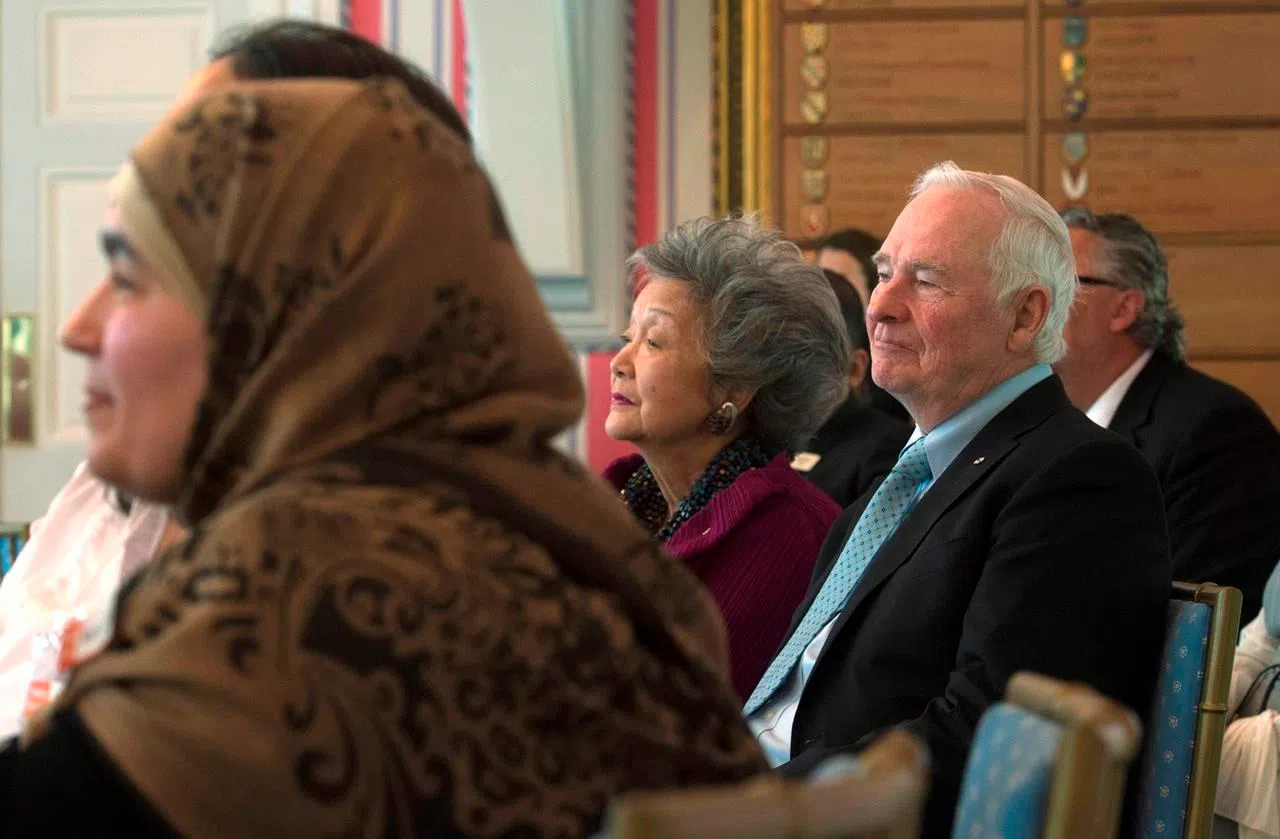
Former GG draws line linking ‘ugliness’ in U.S. to Quebec City mosque attack
OTTAWA — The deadly weekend massacre in Quebec City illustrates how Canada is in danger of being “smothered” by the “ugliness” south of the border, former governor general Adrienne Clarkson told a citizenship ceremony Tuesday.
Clarkson, who arrived in Canada with her family in 1942 when she was barely three years old, spoke about the mosque shooting rampage as she helped welcome 37 people from 17 different countries to the Canadian family.
She recalled how former prime minister Pierre Elliott Trudeau once remarked that living next to the United States was “like sleeping with an elephant.”
But the shadow of that pachydermal neighbour looms even larger now, she said, thanks largely to the Internet.


